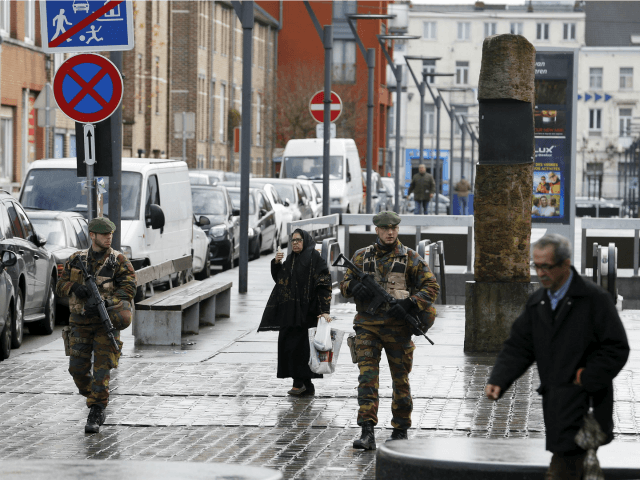Police have uncovered 51 organisations with suspected terrorist ties in the migrant-dominated Molenbeek district of Brussels, according to a new report into anti-terror measures.
Belgium’s Interior Minister Jan Jambon promised to “clean up” the now-notorious municipality, which has a reputation for being a jihadi safe-haven, after authorities discovered the Brussels commune acted as a hub for many of the suspects involved in the Paris and Brussels terror attacks.
The confidential report revealed that under the Channel Plan, police have carried out door-to-door checks on more than 8,600 houses and 22,668 inhabitants — a quarter of all Molenbeek residents — in the last year, in a bid to tighten security.
Under the Channel Plan, which began a year ago and added 300 officers and €39 million to the force, police have produced a list of 72 terror suspects — 26 of whom live in Syria or Iraq and 46 who live in Belgium.
Of Belgium-based jihadists identified, 20 are incarcerated while the other 26 are “closely monitored” by authorities. However, the report revealed that only five of the terror suspects listed are being accompanied by deradicalisation staff.
In total, 6,168 people in Molenbeek are being monitored.
The Channel Plan also had police review the 1,617 NGOs and nonprofit groups situated in the district, with the report revealing police found at least 51 of these had links to terrorism and radical Islam and uncovered a further 102 which were associated with crime.
But deputy mayor of Molenbeek, Ahmed El Khannouss, is among voices who have condemned the “clean up” of the district, branding the Channel Plan “wicked and unjustified”.
“We thought we had overcome such practices [as inspecting mosques] since the Second World War when people were singled out for their religion — a thing which led to one of the worst ignominies of history,” he wrote in an open letter to Mr. Jambon.
The Union of Mosques of the Brussels Region (UMRB) and the Platform of Muslims of Belgium (PMB), too, attacked the programme, writing: “[Police] checks have been carried out with unjustifiable brutality. The prejudices and generalisations we see are not only harmful to our community but society as a whole.”
The groups argued that mosque inspections result in Muslim groups in Belgium feeling “stigmatised” and like they are the victim of “hatred and rejection” from non-Muslims in Belgium.
However, in February, a report by Belgium’s Coordination Unit for Threat Analysis (OCAD) warned radical Islam is spreading in the nation to the detriment of moderate Islam, and empowering extremist and jihadist groups.

COMMENTS
Please let us know if you're having issues with commenting.